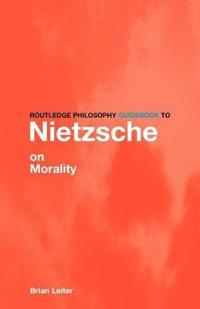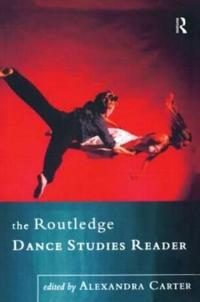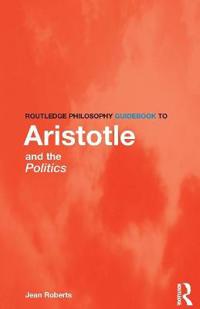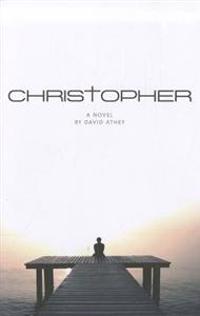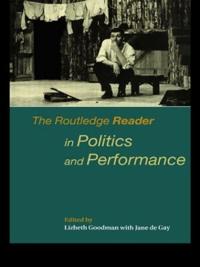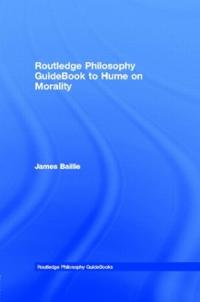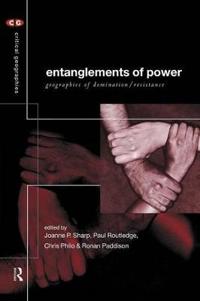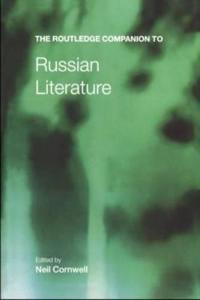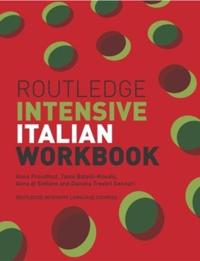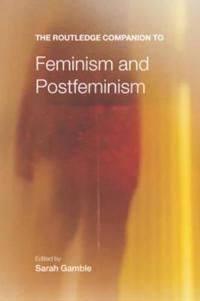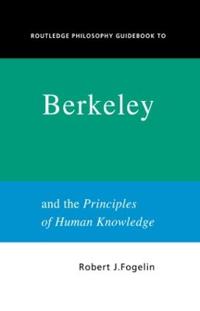Routledge Philosophy Guidebook To Hume On Knowledge (Pocket)
avHarold W. Noonan
ISBN: 9780415150477 - UTGIVEN: 1999-08-05This GuideBook introduces and assesses Hume's seminal, Treatise on Human Nature.
The Routledge Philosophy Guidebook to Nietzsche on Morality (Häftad)
ISBN: 9780415152853 - UTGIVEN: 2002-06Nietzsche is one of the most important and controversial thinkers in the history of philosophy. His writings on moral philosophy are amongst the most widely read works, both by philosophers and non-philosophers. Many of the ideas raised are both startling and disturbing, and have been the source of [...]
Routledge Philosophy Guidebook to Plato and the Trial of Socrates (Pocket)
avThomas C. Brickhouse, Nicholas D. Smith
ISBN: 9780415156820 - UTGIVEN: 2004-07-01The Routledge Dance Studies Reader (Pocket)
avAlexandra (EDT) Carter, Janet (EDT) O'shea, Alexandra (EDT) Carter
ISBN: 9780415164474 - UTGIVEN: 1998-08The Routledge Dance Studies Reader represents the range and diversity of writings from the 1980s and 1990s, providing contemporary perspectives on ballet, modern dance, postmodern 'movement performance' jazz, South Asian dance and Black dance. In an enlightening introduction, Alexandra Carter trace[...]
Routledge Philosophy Guidebook to Aristotle and the Politics (Storpocket)
avJean Roberts
ISBN: 9780415165761 - UTGIVEN: 200904Aristotle's Politics is widely acknowledged as a classic and one of the founding texts of political theory and philosophy. Written by a leading expert in ancient philosophical thought, Aristotle and the Politics is a coherent guide that makes sense of an often difficult and disorganized work, carefu[...]
Routledge Philosophy Guidebook to Hegel and the "Philosophy of Right" (Övrig)
avDudley Knowles
ISBN: 9780415165785 - UTGIVEN: 2002-08-15Hegel is one of the most important figures in the history of ideas and political thought. His Philosophy of Right is widely recognised as one of the greatest works of political philosophy. Hegel and the Philosophy of Right introduces and assesses: * Hegel's life and the background of the Philosophy [...]
The Routledge Reader in Gender and Performance (Häftad)
ISBN: 9780415165839 - UTGIVEN: 1998-09The Routledge Reader in Gender and Performance presents the most influential and widely-known, critical work on gender and performing arts, together with exciting and provocative new writings. It provides systematically arranged articles to guide the reader from topic to topic, and specially linked [...]
Routledge Reader in Politics and Performance (häftad)
ISBN: 9780415174732 - UTGIVEN: 2000-03The Routledge Reader in Politics and Performance brings together for the first time a comprehensive collection of extracts from key writings on politics, ideology, and performance.
Taking an interdisciplinary approach to the subject, and including new writings from leading scholars, the book pro[...]The Routledge Philosophy Guidebook to Kierkegaard and Fear and Trembling (Pocket)
avJohn Lippitt
ISBN: 9780415180474 - UTGIVEN: 2003-06-26Kierkegaard's influence can be observed across the spectrum of twentieth century philosophy and philosophy of religion. This book offers a compelling examination of this most famous work, Fear and Trembling.[...]
Routledge Philosophy Guidebook to Hume on Morality (Häftad)
avJames Bailie
ISBN: 9780415180498 - UTGIVEN: 200004David Hume is widely recognised as the greatest philosopher to have written in the English language. His Treatise on Human Nature is one of the most important works of moral philosophy ever written. Hume on Morality introduces and assesses * Hume's life and the background of the Treatise * The idea[...]
Entanglements of Power (Pocket)
avJoanne (EDT) Sharp, Paul (EDT) Routledge, Chris (EDT) Philo
ISBN: 9780415184359 - UTGIVEN: 1999-11This book argues that practices of resistance cannot be separated from practices of domination, and that they are always entangled in some configuration. They are inextricably linked, such that one always bears at least a trace of the other that contaminates or subverts it. The team of contributor[...]
Routledge Philosophy Guidebook To Hume On Religion (Pocket)
avDavid O'Connor
ISBN: 9780415201957 - UTGIVEN: 2001-04-12Part of a series of introductions to classic works in philosophy, this text discusses the life and work of the 18th-century British philosopher David Hume. Providing a background to his work, it focuses on "Dialogues Concerning Natural Religion", and explores Hume's continuiting importance.[...]
Routledge Philosophy Guidebook To The Later Heidegger (Pocket)
avGeorge Pattison
ISBN: 9780415201971 - UTGIVEN: 2000-06-29The "Routledge Philosophy GuideBook to the Later Heidegger" guides the reader through the complexities of Martin Heidegger's later works. It offers a clear introduction to the main themes that preoccupied Heidegger in the second part of his career: technology, art, the history of philosophy, and the[...]
Routledge Philosophy Guidebook To Rousseau And The Social Contract (Pocket)
avChristopher Bertram
ISBN: 9780415201995 - UTGIVEN: 2003-09-04Rousseau's "Social Contract" is one of the most famous books in political philosophy. This guide takes a thematic look at the text, discussing and examining ideas in the context of the time and their implications for future philosophical and political thought.[...]
The Routledge Companion To The American Civil War Era (Pocket)
avHugh Tulloch
ISBN: 9780415229531 - UTGIVEN: 2006-04-11The American Civil War era is one of the most significant periods in US history. Serving as a reference guide to the period, this book examines the war itself, alongside the political, constitutional, social, economic, literary and religious developments and trends that informed and were formed by t[...]
The Routledge Companion to Russian Literature (Häftad)
ISBN: 9780415233668 - UTGIVEN: 200109The Routledge Companion to Russian Literature is an engaging and accessible guide to Russian writing of the past thousand years. The volume covers the entire span of Russian literature, from the Middle Ages to the post-Soviet period, and explores all the forms that have made it so famous: poetry, dr[...]
A Routledge Literary Sourcebook On William Shakespeare's King Lear (Pocket)
avGrace Ioppolo
ISBN: 9780415234726 - UTGIVEN: 2003-05-22With a remarkable breadth of coverage and a focused, user-friendly approach, this Routledge Literary Sourcebook is the essential guide for any student of King Lear.[...]
Kate Chopin's the Awakening: A Routledge Study Guide and Sourcebook (Pocket)
avJanet Beer, Elizabeth Nolan
ISBN: 9780415238212 - UTGIVEN: 2004-05-20Providing all the tools for engaged, informed individual analysis of the text, this is an essential starting point for students of American literature and women's writing, or for anyone fascinated by Chopin's controversial work.[...]
Routledge Intensive Italian Workbook
ISBN: 9780415240796 - UTGIVEN: 2004-12The Routledge Intensive Italian Workbook is a comprehensive book of exercises and tasks for beginner and intermediate learners of Italian.It includes a wide variety of exercises - covering a broad range of situations and functions - and will help students to progress rapidly and master the language [...]
The Routledge Companion to Feminism and Postfeminism (Häftad)
avS. Gamble
ISBN: 9780415243100 - UTGIVEN: 200105Approachable for general readers as well as for students in women's studies related courses at all levels, this invaluable guide follows the unique Companion format in combining over a dozen in-depth background chapters with more than 400 A-Z dictionary entries. The background chapters are written[...]
Routledge Companion to the New Cosmology, The (Övrig)
avPeter Coles
ISBN: 9780415243124 - UTGIVEN: 2001-05-24Just what is Einstein's Theory of Relativity? The Big Bang Theory? Curvature of Spacetime? What do astronomers mean when they talk of a 'flat universe'? This approachable and authoritative guide to the cosmos answers these questions, and more. Taking advantage of the distinctive Companion format, re[...]
Routledge history of literature in english (Pocket)
avJohn McRae
ISBN: 9780415243186 - UTGIVEN: 2001-04-26This volume covers the main developments in the history of British and Irish literature with accompanying language notes exploring the inter-relationships between language and literature. The analysis begins in 600AD.[...]
Routledge Literary Sourcebook On Charles Dickens' Bleak House (Pocket)
avJanice Allan
ISBN: 9780415247733 - UTGIVEN: 2004-05-20This Sourcebook examines Dickens' novel within its literary and cultural contexts providing an ideal orientation in the novel, its reception history and the critical material which surrounds it.[...]
Routledge Philosophy Guidebook to Berkeley and the "Principles of Human Knowledge" (Häftad)
avRobert Fogelin
ISBN: 9780415250115 - UTGIVEN: 200106George Berkeley is one of the most prominent philosophers of the 18th century. His "Treatise Concerning the Principles of Human Knowledge" is a focal point for the understanding of empiricist thought and the development of 18th-century philosophy. This volume introduces and assesses: Berkeley's life[...]
Routledge Philosophy Guidebook To Aristotle And The Metaphysics (Pocket)
avVasilis Politis
ISBN: 9780415251488 - UTGIVEN: 2004-02-19Aristotle's 'Metaphysics' is one of the most important texts in ancient philosophy. This guide provides a thematic study. It assesses Aristotle's life, the background to the 'Metaphysics' and Aristotle's legacy, as well as discussing the arguments in the text.[...]


